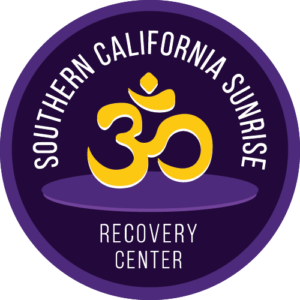Tres Vistas Recovery excels in the realm of outpatient addiction treatment, dedicating its expertise to assisting individuals grappling with substance abuse challenges. This includes a significant focus on those contending with prescription drug addiction, particularly with medications such as Xanax. To address the joint inquiry “Is Xanax a narcotic?”, it is essential to understand its classification and the implications for treatment. Xanax, known generically as alprazolam, is a central nervous system depressant in the benzodiazepine class, prescribed primarily for anxiety and panic disorders. According to the United States Drug Enforcement Administration (DEA), Xanax is classified as a Schedule IV controlled substance, which highlights its potential for abuse but at a lower risk compared to Schedule I through III drugs.
This classification indicates that Xanax is not a narcotic in the traditional sense, which is a term more closely associated with opioids and their strong pain-relieving and addictive properties. However, the potential for abuse and dependency necessitates specialized treatmentent approaches, such as those provided by Tres Vistas Recovery through our Intensive Outpatient Programs (IOP) and Partial Hospitalization Programs (PHP), tailored to support recovery and manage dependency effectively.
Xanax and Its Classification
Alprazolam, known widely by the trade name Xanax, is distinguished as the most commonly prescribed psychotropic medication in the United States for managing panic and anxiety disorders. Its role in effectively mitigating episodes of acute anxiety underscores its significance in treating these conditions. As a benzodiazepine, alprazolam enhances the inhibitory effects of gamma-aminobutyric acid (GABA) in the brain, leading to its soothing and anxiolytic properties.
However, the medication’s rapid onset and potential for euphoria raise concerns about misuse and addiction. This necessitates stringent prescription practices and diligent monitoring to mitigate dependency risks. Health professionals balance its therapeutic benefits against these risks, prescribing alprazolam for FDA-labeled indications like generalized anxiety and panic disorders while being cautious of its potential for recreational misuse. The careful management of alprazolam treatment aims to maintain its value in psychiatric care while safeguarding against abuse.
Narcotic Definition
The term “narcotic” has historically been linked to opiates, substances known for their pain-relieving and soothing properties, which also carry a significant risk of abuse and dependence. Over time, the definition of “narcotic” has expanded in common usage to encompass a more comprehensive range of substances capable of inducing dependence or abuse. This broader definition reflects the evolving understanding of substance abuse and dependence beyond just opiate-related substances. According to the World Health Organization (WHO), narcotics are now more inclusively categorized under the umbrella of psychoactive substances that have the potential for misuse and dependence, illustrating the global health body’s recognition of the diverse nature of addictive substances. This expanded definition underscores the need for a comprehensive approach to substance abuse treatment and prevention, acknowledging the broad spectrum of substances that can lead to addiction and dependency issues.
Classification of Xanax
Xanax, known scientifically as alprazolam, does not fall into the narcotic category according to both medical and legal definitions. Instead, it is classified as a controlled substance under the United States Controlled Substances Act, where it has been designated as a Schedule IV drug. This specific categorization reflects a recognition of Xanax’s potential for abuse and dependence, albeit at a lower level compared to substances listed under Schedules I through III. Schedule IV substances are acknowledged to have legitimate medical use but also a possibility for users to develop a dependency and potential abuse scenario. This nuanced classification underlines the need for careful prescription and monitoring of alprazolam to mitigate risks while leveraging its therapeutic benefits for treating anxiety and panic disorders.
Risks Associated with Xanax Use
While effective for its intended use, Xanax poses risks of dependency and addiction. Dependency can develop rapidly, leading to a host of psychological and physical issues.
- Tolerance development necessitates higher doses for the same effect: Users may find that over time, their bodies become accustomed to the dosage, diminishing the drug’s efficacy and compelling them to increase their dosage to achieve the desired therapeutic effects.
- Withdrawal symptoms upon cessation: Discontinuing Xanax, especially abruptly, can lead to withdrawal symptoms. These symptoms can range from mild, such as restlessness and anxiety, to severe, including seizures and psychosis, making it essential for discontinuation to be medically supervised.
- Compulsive use despite adverse consequences: A hallmark of addiction is the continued use of Xanax despite the onset of adverse outcomes, such as deteriorating health, strained relationships, or financial and legal troubles.
- Difficulty in reducing or stopping consumption: Many users express a desire to cut down or stop their use of Xanax but find themselves unable to do so. This difficulty is often due to the fear of withdrawal symptoms, the underlying conditions the drug was prescribed to manage, or a psychological dependence on the drug’s effects.
Addressing these risks requires a comprehensive approach, including medical supervision for safely tapering off the drug, support for coping with withdrawal symptoms, and treatment options that address both the physical dependency and the psychological aspects of addiction.
Treatment Options at Tres Vistas Recovery
Intensive Outpatient Program (IOP)
The IOP at Tres Vistas Recovery offers structured treatment while allowing participants to reside outside the facility. Key components include:
- Group and individual therapy sessions
- Education on substance abuse
- Strategies for anxiety management without medication
Partial Hospitalization Program (PHP)
The PHP provides a more intensive care level as a midpoint between inpatient and outpatient settings. Features include:
- Daily therapeutic activities
- Medical oversight
- Holistic wellness approaches
- Relapse prevention strategies
Prescription Drug Addiction Treatment at Tres Vistas Recovery
Tres Vistas Recovery adopts a holistic approach, addressing the psychological, physical, and social aspects of addiction. The treatment model integrates evidence-based practices and supportive therapies to ensure a holistic recovery. This comprehensive approach is crucial when tackling addiction to prescription medications such as Xanax and exploring related concerns like why is OxyContin addictive? Understanding the underlying reasons for addiction to various prescription drugs enhances the effectiveness of treatment plans and supports more informed healthcare decisions.
Xanax, while not a narcotic by strict definition, carries a significant risk for abuse and dependency. Recognizing the complexities of Xanax addiction, Tres Vistas Recovery provides targeted outpatient treatment programs (IOP and PHP) designed to support individuals in overcoming dependency. Focusing on comprehensive care and community support, Tres Vistas Recovery is committed to assisting patients in navigating their recovery journey toward long-term wellness.

Tracey Kane is an Associate Marriage and Family Therapist and Assistant Clinical Director at Tres Vistas Recovery. With over 11 years of experience in the field of addiction treatment, Tracey has dedicated her career to helping individuals struggling with substance abuse and mental health issues.












